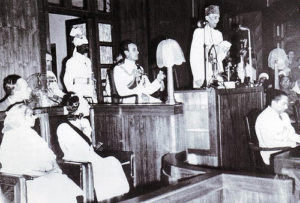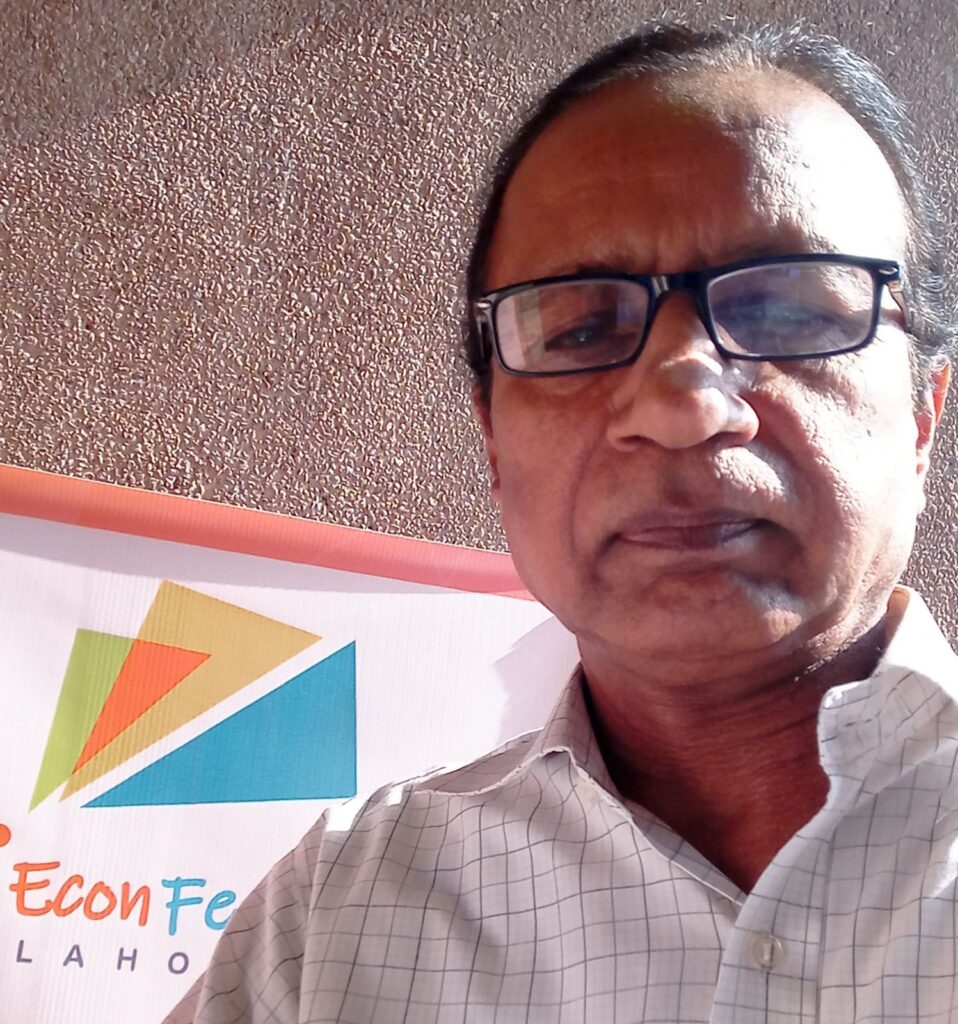ڈان‘‘ اور سیاست دان اور عام لوگ’’
[سیاسی قضیے: [5 جولائی، 2018
ویسے تو انگریزی اخبار، ’’ڈان‘‘ اشتراکیت اور اشتراکیوں کی طرف جھکاؤ رکھتا ہے، جو اپنے مقصد حصول کے لیے طاقت اور تشدد کے استعمال کو جائز سمجھتے ہیں۔ مگر لیاری میں ووٹروں نے پیپلز پارٹی کے ’’کراؤن پرنس‘‘، بلاول بھٹو زرداری کا جس طرح استقبال کیا، ’’ڈان‘‘ کو یہ انداز اچھا نہیں لگا۔ ’’ڈان‘‘ نے اس پر جو اداریہ لکھا، اس کا عنوان ہی معنی خیز ہے: سیاست دانوں کو شرم دلانا [3 جولائی، 2018]۔
اداریہ پڑھ کر اس عنوان کا مطلب یہ بنتا ہے کہ لیاری کے ووٹروں کا سیاست دانوں کو اس انداز میں شرم دلانا درست نہیں۔ ’’ڈان‘‘ کی رائے یہ ہے کہ ووٹروں کو سیاست دانوں کی نااہلی پر اپنا ردِعمل ووٹ کی صورت میں ظاہر کرنا چاہیے۔
ڈان کے مطابق یہ رجحان تکلیف دہ ہے۔ ناخوش ووٹروں نے متعدد انتخابی امیدواروں کے ساتھ اچھا سلوک نہیں کیا، اور یوں ممتاز …
Quaid’s 11 August (1947) Address Be made Substantive Part of the Constitution
Since long, a controversy has been raging as to what kind of state Quaid-i-Azam Mohammad Ali Jinnah wanted Pakistan to be: a religious state or a secular state. Fortunately, that controversy precludes certain extremes, for instance, it is generally understood and admitted that Quaid never wanted Pakistan to be a theocratic or a socialist state. That amounts to saying that the controversy focuses mainly on whether it was an “Islamic” state or a “secular” state that Quaid may have envisioned.

That controversy has its roots in what Quaid himself said, that is, the speeches and addresses he delivered on various occasions. Both of the camps quote and cite inconsistent statements and argue for their case. That’s what makes the controversy complicate manifold.
Apart from such dishonesties with the help of which concocted statements are attributed to Quaid; or out of the context meanings are drawn from his statements; or this …
Why taxes are not a political issue in Pakistan?
What the political parties are doing in hospitals!
Minister directs hospitals to remove political parties’ offices
KARACHI: Sindh health minister Jam Mehtab Dahar has directed the managements of all public hospitals in the city to remove the offices of political parties from their premises, ordering them not to take any pressure while taking action against them.
The major public hospitals, including Civil Hospital, Karachi (CHK), Jinnah Postgraduate Medical Centre (JPMC), Abbasi Shaheed Hospital, National Institute of Child Health and National Institute of Cardiovascular Diseases, until now, housed the offices of various political parties that enjoyed influence in the area where the facility was located.
“These should be hospitals, not offices of political parties,” he directed the officials. The minister has also asked them to immediately remove political slogans, banners, pamphlets and other such materials from these institutions.
Most of

